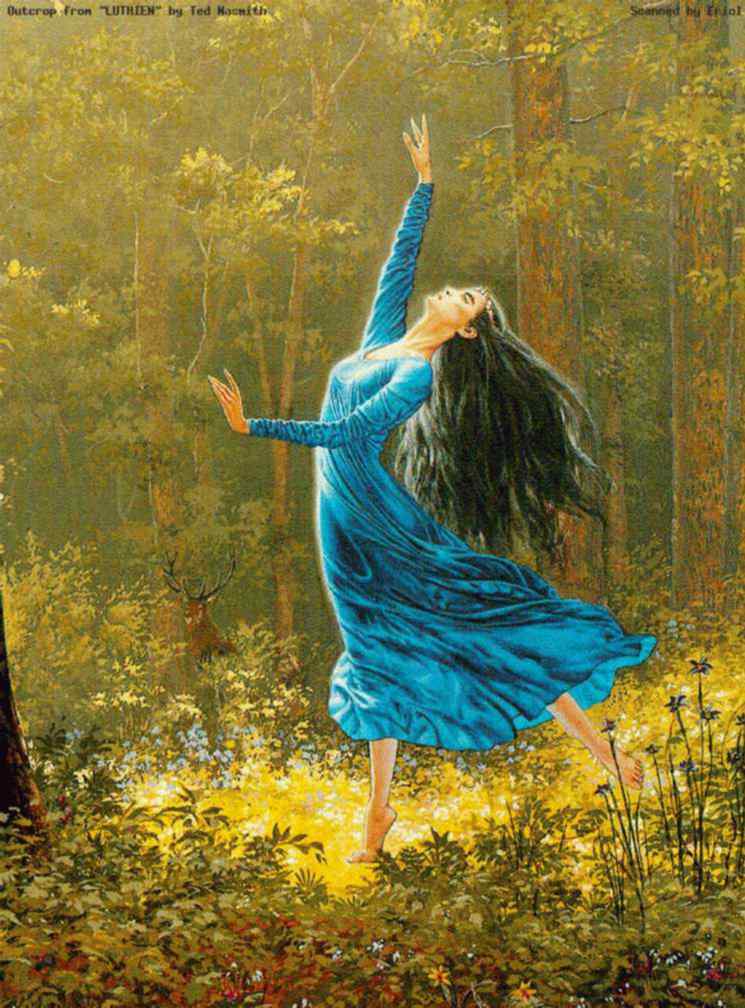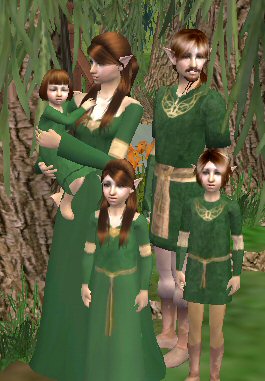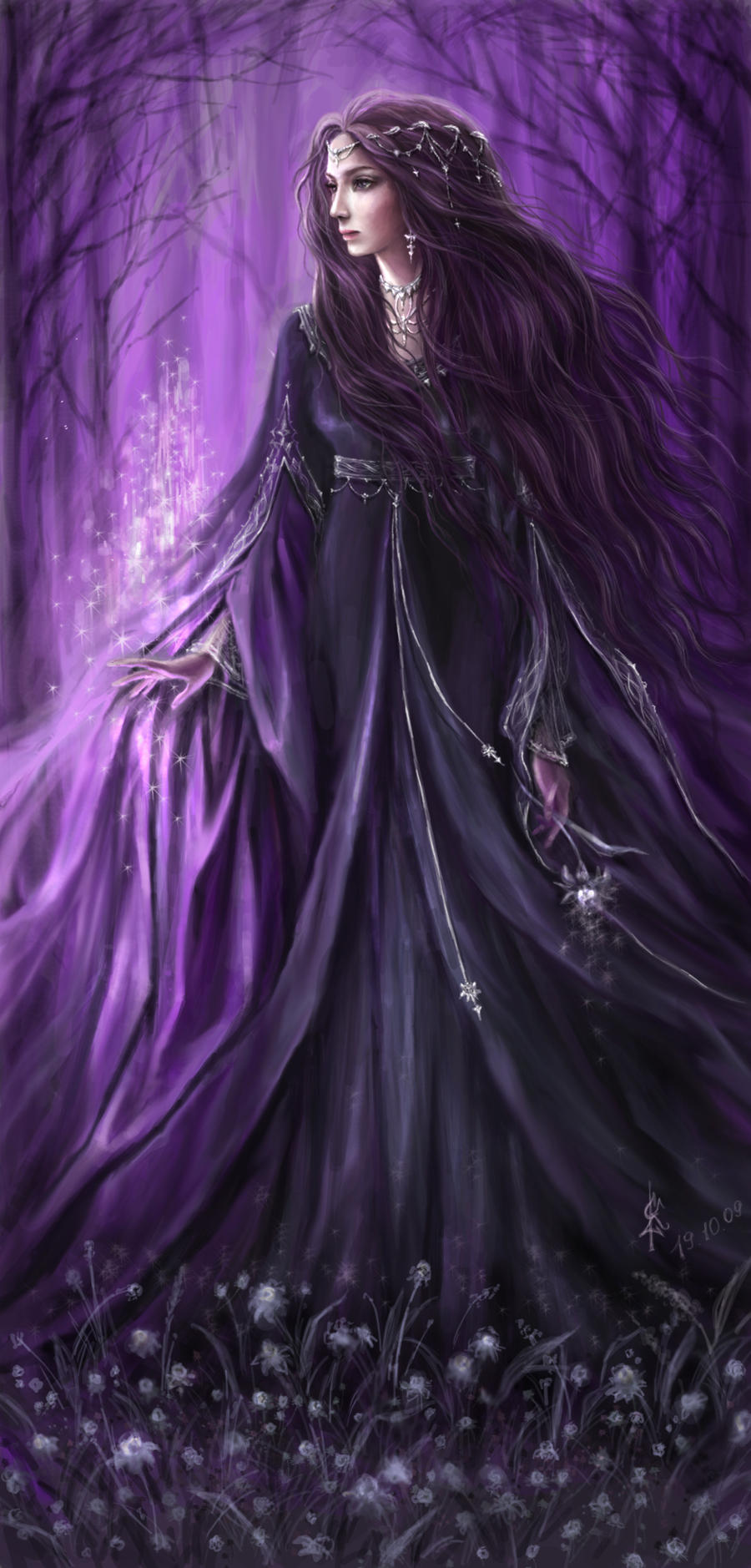(This is a mirror post from Second Life note card by Lihan Taifun of JRRT quotes.)

"Now the Valar took to themselves shape and hue; and because they were drawn into the World by love of the Children of Ilúvatar, for whom they hoped, the took shape after that manner which they had beheld in the Vision of Ilúvatar, save only in majesty and splendour Moreover, their shape comes of their knowledge of the visible World, rather than of the World itself; and they need it not, save only as we use raiment, and yet we may be naked and suffer no loss of our being. Therefore the Valar may walk, if they will, unclad, and then even the Eldar cannot clearly perceive them, though they be present. But when they desire to clothe themselves, the Valar take upon them forms some as of male and some as of female; for that difference of temper they had even from their beginning,
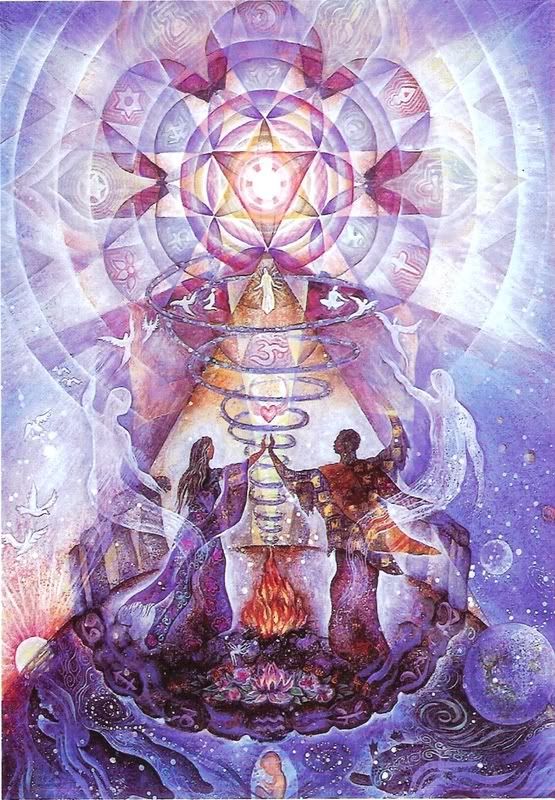
and it is but bodied forth in the choice of each, not made by that choice, even as with us male and female may be shown by the raiment but is not made thereby. But the shapes wherein the Great Ones array themselves are not at all times like the shapes of the kings and queens of the Children of Ilúvatar; for at times they may clothe themselves in their own thought, make visible in forms of majesty and dread.
...
"Then Melkor saw ... that the Valar walked on earth as powers visible, clad in the raiment of the World, and were lovely and glorious to see, and blissful. ... His envy grew then the greater within him; and he also took visible form, but because of his mood and the malice that burned in him that form was dark and terrible.
Silmarillion, "Ainulindalë"
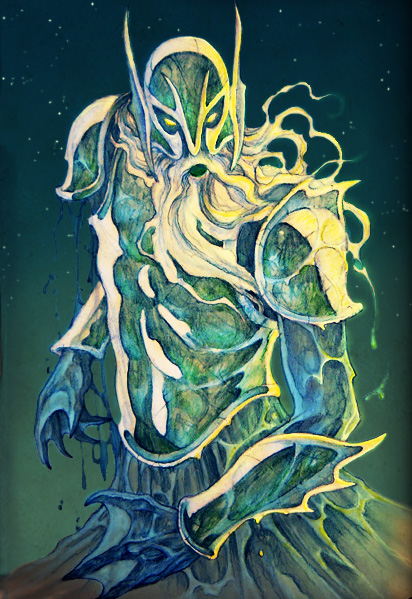
[Ulmo] does not love to walk upon the land, and will seldom clothe himself in a body after the manner of his peers. If the Children of Eru beheld him they were filled with a great dread; for the arising of the King of the Sea was terrible, as a mounting wave that strides to the land, with dark helm foam-crested and raiment of mail shimmering from silver down into shadows of green. ... Ulmo's voice is deep as the deeps of the ocean, which only he has seen.
Silmarillion, "Valaquenta"
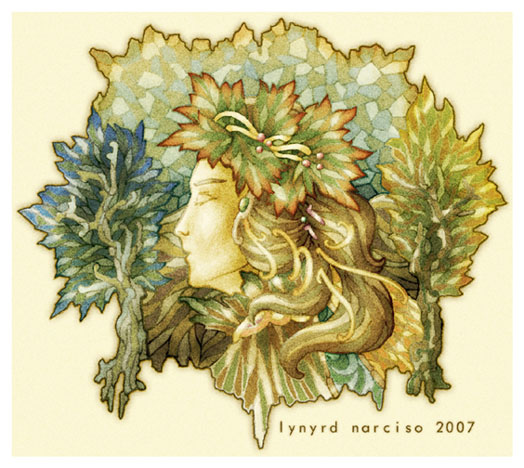
In the form of a woman, [Yavanna] is tall, and robed in green; but at times she takes other shapes. Some there are who have seen her standing like a tree under heaven, crowned with the sun; and from all its branches there spilled a golden dew upon the barren earth ...
Silmarillion, "Valaquenta"
In Angband Morgoth forged for himself a great crown of Iron, and he called himself King of the World. In token of this he set the Silmarils in this crown. His hands were burned black by the touch of those hallowed jewels, and black they remained ever after; nor was he ever free from the pain of the burning, and the anger of the pain.
...
Nonetheless his majesty as one of the Valar long remained, though turned to terror.
Silmarillion, "Of the Flight of the Noldor"

[Arien, Maia of the Sun] was chosen because she had not feared the heats of Laurelin,, and was unhurt by them, being from the beginning a spirit of fire, whom Melkor had not deceived nor drawn into his services. To bright were they eyes of Arien for even the Eldar to look on, and leaving Valinor she forsook the form and raiment which like the Valar she had worn there, and she was as a naked flame, terrible in the fullness of her splendour.
Silmarillion, "Of the Sun and Moon"
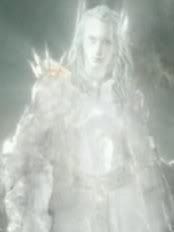
Of old there was Sauron the Maia..... He became the most trusted of the servents of the Enemy, and the most perilous, for he could asssume many forms, and for long if he willed he could still appear noble and beautiful, so as to deceive all but the most wary.
Silmarillion, "Of the Rings of Power and the Third Age"
[During the fall of Númenor] the world was broken, and the land was swallowed up, and the seas rose over it, and Sauron himself went down into the abyss. But his spirit arose and fled back on a dark wind to Middle-Earth, seeking a home.
[After the fall of Númenor, Sauron returned to his old haunts in Mordor, in Middle Earth.] There now he brooded in the dark, until he had wrought for himself a new shape; and it was terrible, for his fair semblance had departed for ever when he was cast into the abyss at the drowning of Númenor.
Silmarillion, "Of the Rings of Power and the Third Age"

But at last the siege was so strait that Sauron himself came forth; and he wrestled with Gil-galad and Elendil, and they both were slain, and the sword of Elendil broke under him as he fell. But Sauron also was thrown down, and with the hilt-shard of Narsil Isildur cut the Ruling Ring from the hand of Sauron and took it for his own. Then Sauron was for that time vanquished, and he forsook his body, and his spirit fled far away and hid in waste places; and he took no visible shape again for many long years.
Silmarillion, "Of the Rings of Power and the Third Age"
[Gandalf describes his battle with the Balrog:]
" ... I threw down my enemy, and he fell from the high place and broke the mountain-side where he smote it in his ruin. Then darkness took me, and I strayed out of thought and time, and I wandered far on roads that I will not tell.
"Naked I was sent back -- for a brief time, until my task is done. And naked I lay upon the mountain-top. ... There I lay staring upward, while the stars wheeled over, and each day was as long as a life-age of the earth. ... And so at the last Gwaihir the Windlord [Chief of the Eagles] found me again, and he took me up and bore me away."
The Two Towers, "The White Rider"
(According to the timeline in Appendix B, Gandalf was dead for 19 days.)
"If you must know more, his name is Beorn.
He is very strong, and he is a skin-changer.
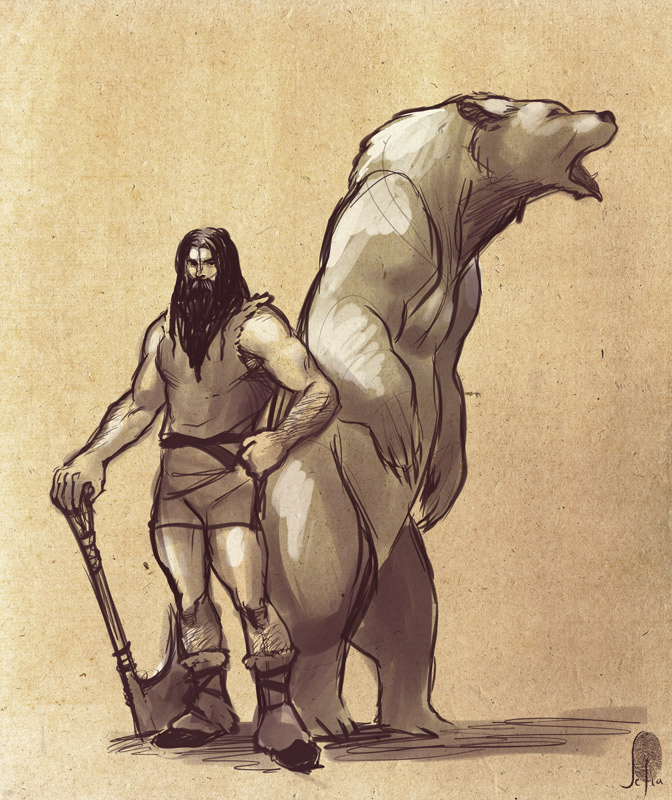
"... He changes his skin: sometimes he is a huge black bear, sometimes he is a great strong black-haired man with huge arms and a great beard. I cannot tell you much more, though that ought to be enough. Some say that he is a bear descended from the great and ancient bears of the mountains that lived there before the giants came. Others say that he is a man descended from the first men ... I cannot say. ... He is not the sort of person to ask questions of. At any rate he is under no enchantment but his own. ... As a man he keeps cattle and horses that are nearly as marvelous as himself. ...
As a bear he ranges far and wide."
The Hobbit, Chapter 7
"The realm of Sauron is ended!" said Gandalf.
"And as the Captains gazed south to the Land of Mordor, it seemed to them that, black against the pall of cloud, there rose a huge shape of shadow, impenetrable, lightning-crowned, filling all the sky. Enormous it reared above the world, and stretched out toward them a vast threatening hand, terrible but impotent: for even as it leaned over them, a great wind took it, and it was all blown away, and passed; and a hush fell.
Return of the King, "The Field of Cormallen"

"To the dismay of those that stood by, about the body of Saruman a grey mist gathered, and rising slowly to a great height like smoke from a fire as a pale shrouded figure it loomed over the Hill. For a moment it wavered, looking to the West; but out of the West came a cold wind, and it bent away, and with a sigh dissolved into nothing.
Return of the King, "The Scouring of the Shire"

